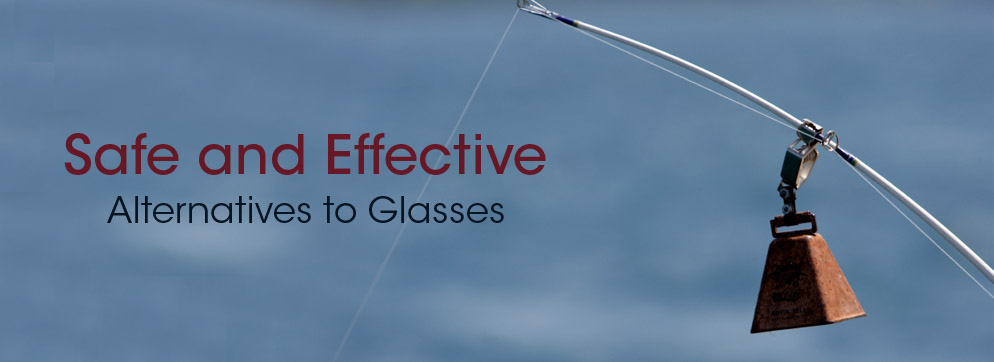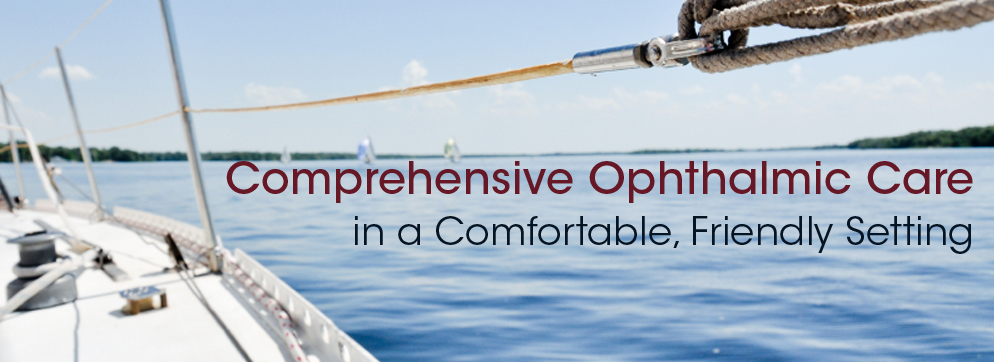Refractive & LASIK
LASIK
 Many people who are tired of wearing glasses or contact lenses seek the help of refractive surgeons. Refractive surgery improves vision by correcting refractive errors such as nearsightedness (myopia), farsightedness (hyperopia) and astigmatism. A high percentage of patients enjoy 20/20 vision or better after their procedure.
Many people who are tired of wearing glasses or contact lenses seek the help of refractive surgeons. Refractive surgery improves vision by correcting refractive errors such as nearsightedness (myopia), farsightedness (hyperopia) and astigmatism. A high percentage of patients enjoy 20/20 vision or better after their procedure.
Lasik or Laser In-Situ Keratomileusis reshapes the cornea by removing tissue beneath the surface of the cornea. LASIK combines the accuracy of the Excimer Laser with the benefits of Lamellar Keratoplasty (LK).
First, a device called a microkeratome lifts a thin layer of the cornea. This instrument creates a precise layer by working very much like a carpenter's plane. This layer, or flap, is then folded back. Next, a cool beam of light gently reshapes the outer surface of the cornea. The laser treatment typically takes less than one minute, and the flap is replaced in its original position.
 LASIK is performed on an outpatient basis and takes less than 30 minutes. You will lie in a reclining chair in our laser suite. A numbing drop will then be placed in your eye, the area around your eye will be cleaned and an instrument called a lid speculum will be used to hold your eyelids open. A ring will be placed on your eye and pressure will be applied to create a suction to the cornea. Your vision will dim while the suction ring is on and you may feel some slight discomfort. This will last approximately 15 seconds. The microkeratome, a cutting instrument, will be attached to the ring to cut the flap in your cornea. The instruments will then be removed. The doctor will lift the flap, exposing the tissue and the laser will be positioned over the eye. The laser will then begin to vaporize the corneal tissue according to the amount of correction you need. The flap will then be laid back into position and the natural healing process will begin.
LASIK is performed on an outpatient basis and takes less than 30 minutes. You will lie in a reclining chair in our laser suite. A numbing drop will then be placed in your eye, the area around your eye will be cleaned and an instrument called a lid speculum will be used to hold your eyelids open. A ring will be placed on your eye and pressure will be applied to create a suction to the cornea. Your vision will dim while the suction ring is on and you may feel some slight discomfort. This will last approximately 15 seconds. The microkeratome, a cutting instrument, will be attached to the ring to cut the flap in your cornea. The instruments will then be removed. The doctor will lift the flap, exposing the tissue and the laser will be positioned over the eye. The laser will then begin to vaporize the corneal tissue according to the amount of correction you need. The flap will then be laid back into position and the natural healing process will begin.
Some of the advantages of LASIK are little or no postoperative discomfort, waking with good vision the following morning, being back at work quickly, and eye drops are used for less than a week.
Dr. Favero seek the very best outcomes from excellent candidates only, and at least 30% of patients will be advised that they should not have laser vision correction. When you meet with us for your consultation, after a thorough examination and discussion, we will be able to tell you if you are suitable to proceed. You will then have the opportunity to ask questions about the procedure and make an informed decision.
Photorefractive Keratectomy (PRK)
 Photorefractive Keratectomy, or PRK, is also performed with an excimer laser. As in LASIK the ophthalmologist precisely vaporizes a thin layer of the cornea with the laser beam. However, in PRK, the surface of the cornea, the epithelium, is gently removed rather than creating a flap. Like LASIK, the procedure is preformed under a local anesthetic.
Photorefractive Keratectomy, or PRK, is also performed with an excimer laser. As in LASIK the ophthalmologist precisely vaporizes a thin layer of the cornea with the laser beam. However, in PRK, the surface of the cornea, the epithelium, is gently removed rather than creating a flap. Like LASIK, the procedure is preformed under a local anesthetic.
Conductive Keratoplasty
 Did you have excellent vision until you needed distance glasses at 30? Did you turn 40 and find that you needed bifocals? If so, you may be among the millions of Americans who have presbyopia or hyperopia (farsightedness). Presbyopia is a natural change in our eyes’ ability to focus. It occurs when the crystalline lens of the eye loses its flexibility, causing objects to appear blurry.
Did you have excellent vision until you needed distance glasses at 30? Did you turn 40 and find that you needed bifocals? If so, you may be among the millions of Americans who have presbyopia or hyperopia (farsightedness). Presbyopia is a natural change in our eyes’ ability to focus. It occurs when the crystalline lens of the eye loses its flexibility, causing objects to appear blurry.
Conductive Keratoplasty or CK is a safe, non-laser, non-cutting technique approved by the FDA to reduce or eliminate presbyopia or hyperopia for patients over 40. Instead of a scalpel or a laser, CK releases radiofrequency (RF) energy through a probe as thin as a strand of human hair, treating your vision condition without cutting or removing tissue. The controlled release of RF energy in a circular pattern shrinks connective tissue in the cornea to reshape it, improving the way the eye focuses light.
CK was the first FDA-approved method for treating hyperopia. It is safer and less invasive than the LASIK procedure and avoids the complications associated with LASIK treatment such as dry eyes, hazy vision, light sensitivity or poor quality of vision. It takes less than five minutes per eye and uses only a topical anesthetic. Post-operative discomfort is minimal and vision improves almost immediately.
All refractive screenings are free and financing options are available if you decide to have the procedure.
Optical Shop
In addition to the comprehensive ophthalmology services provided at Port Huron Ophthalmology, our practice also features an optical shop with a wide array of eyeglass frames and contact lenses to suit every and budget. We offer patients frames from many elite designers, as well as stylish yet affordable alternatives. We also carry a full line of frames for children and teens.
 For more info on our Refractive & LASIK procedures, call us to schedule an appointment 810-985-9600.
For more info on our Refractive & LASIK procedures, call us to schedule an appointment 810-985-9600.





